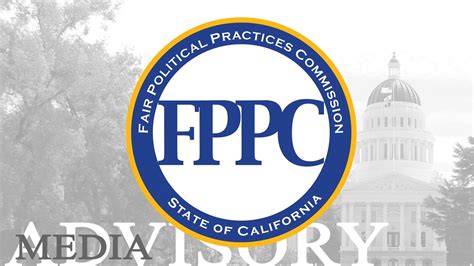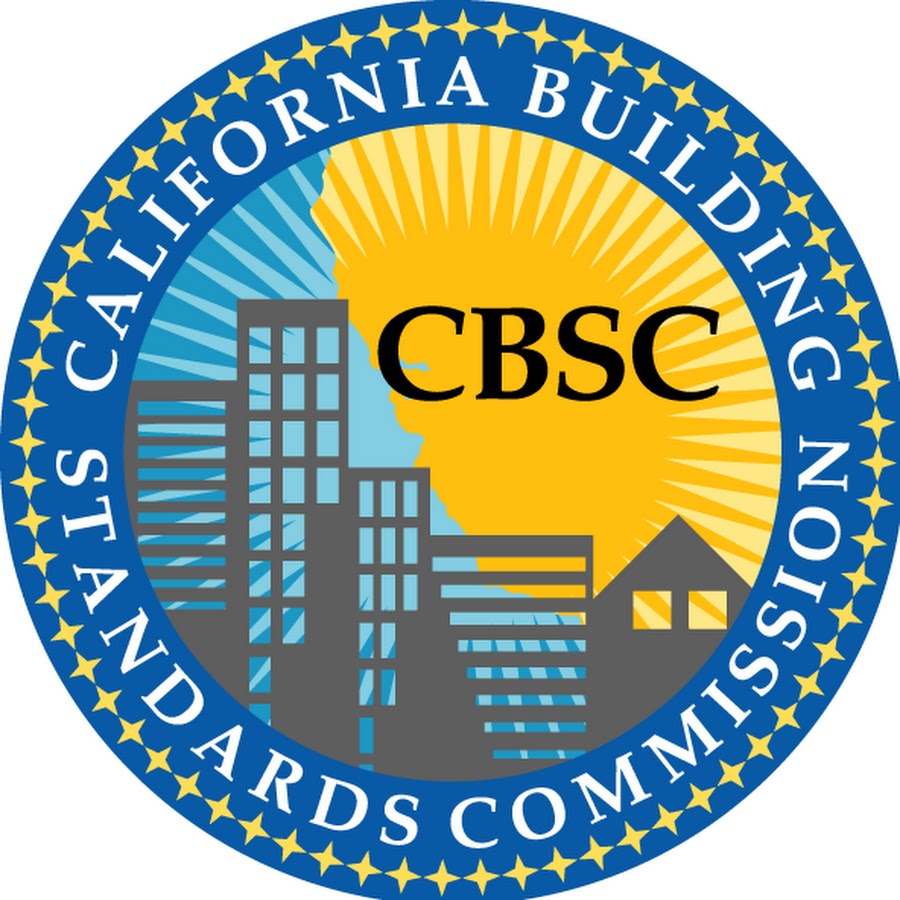
FPPC logo. (Photo: fppc.ca.gov)
California Fair Political Practice Commission Statutory Provisions
The FPPC does not have power to exempt any person from any of its requirements
By Chris Micheli, February 2, 2022 6:21 am
California’s Fair Political Practices Commission (FPPC) was created by Proposition 9, which was adopted by the voters in June 1974. Under Title 9 (“Political Reform”) of the Government Code is Chapter 3, which is titled “Fair Political Practices Commission,” and contains Sections 83100 – 83124.
Section 83100 provides that there is in state government the Fair Political Practices Commission (FPPC). The FPPC has five members, including the chair. No more than three members of the FPPC can be members of the same political party. Section 83101 specifies that the chair and one additional member of the FPPC are appointed by the Governor and that the Governor’s appointees cannot be members of the same political party.
Section 83102 specifies that the Attorney General, the Secretary of State, and the Controller each appoint one member of the FPPC. Section 83103 provides that the members and the chair of the FPPC serve four-year terms beginning on February 1 and ending on January 31 or as soon thereafter as their successors are qualified.
Section 83104 requires vacancies on the FPPC to be filled within 30 days by appointment of the same official who appointed the prior holder of the position. A vacancy or vacancies does not impair the right of the remaining members to exercise all of the powers of the FPPC. Three members constitute a quorum.
Section 83105 requires each member of the FPPC to be a voter. A member of the FPPC, during the member’s tenure, cannot hold any other public office, serve as an officer of any political party or partisan organization, participate in or contribute to an election campaign, or employ or be employed as a lobbyist nor, during the member’s term of appointment, seek election to any other public office.
In addition, members of the FPPC may be removed by the Governor, with concurrence of the Senate, for substantial neglect of duty, gross misconduct in office, inability to discharge the powers and duties of office or violation of this section, after written notice and opportunity for a response.
Section 83106 requires the chair of the FPPC to be compensated at the same rate as the president of the Public Utilities Commission. The other four Members are paid at a rate of $100 for each day on which the Member engages in official duties.
Section 83107 requires the FPPC to appoint an executive director who acts in accordance with FPPC’s policies and regulations. The Commission appoints and discharges officers, counsel and employees, consistent with applicable civil service laws, and fix the compensation of employees and prescribe their duties.
Section 83108 allows the FPPC to delegate authority to the chair or the executive director to act in the name of the FPPC between meetings of the Commission. Section 83110 provides that the principal office of the FPPC is in Sacramento but it may establish offices, meet, and exercise its powers at any other place in the state.
Section 83111 provides that the FPPC has primary responsibility for the impartial, effective administration and implementation of the Political Reform Act (PRA). Section 83111.5 requires the FPPC to not take action to implement the PRA that would abridge constitutional guarantees of freedom of speech, that would deny any person of life, liberty, or property without due process of law, or that would deny any person the equal protection of the laws.
Section 83112 authorizes the FPPC to adopt, amend and rescind regulations to carry out the purposes and provisions of the PRA, and to govern procedures of the FPPC. Section 83113 requires the FPPC to do all of the following:
- Prescribe forms for reports, statements, notices and other documents required.
- Prepare and publish manuals and instructions setting forth methods of bookkeeping and preservation of records to facilitate compliance with and enforcement of the PRA, and explaining the duties of persons and committees.
- Provide assistance to agencies and public officials in administering the provisions of the PRA.
- Maintain a central file of local campaign contribution and expenditure ordinances forwarded to it by local government agencies.
- Annually publish a booklet not later than March 1 that sets forth the provisions of the PRA and includes other information the FPPC deems pertinent to the interpretation and enforcement of the PRA.
Section 83114 allows any person to request the FPPC to issue an opinion with respect to that person’s duties. The FPPC is required, within 14 days, to either issue the opinion or advise the person who made the request whether an opinion will be issued. Any person who acts in good faith on an opinion issued to that person by the FPPC is not subject to criminal or civil penalties for so acting, provided that the material facts are as stated in the opinion request. The FPPC’s opinions are public records and may be published.
Section 83115 requires the FPPC to investigate possible violations of the PRA upon receipt of a sworn complaint or on its own initiative relating to any agency, official, election, lobbyist or legislative or administrative action.
Section 83115.5 provides that a finding of probable cause to believe the PRA has been violated cannot be made by the FPPC unless, at least 21 days prior to the FPPC’s consideration of the alleged violation, the person alleged to have violated the PRA is notified of the violation by service of process or registered mail with return receipt requested, provided with a summary of the evidence, and informed of that person’s right to be present in person and represented by counsel at any proceeding of the FPPC.
Section 83116 states that, when the FPPC determines there is probable cause for believing the PRA has been violated, it may hold a hearing to determine if a violation has occurred.
Section 83116.3 requires the FPPC to state the reasons in writing for rejecting the decision of an administration law judge. Section 83116.5 states that, any person who violates any provision of the PRA, who purposely or negligently causes any other person to violate any provision of the PRA, or who aids and abets any other person in the violation of any provision of the PRA, is liable.
Section 83117 authorizes the FPPC to:
- Accept grants, contributions and appropriations;
- Contract for any services which cannot satisfactorily be performed by its employees;
- Employ legal counsel. Upon request of the Commission, the Attorney General is required to provide legal advice and representation without charge to the FPPC.
Section 83117.5 provides that it is unlawful for a member of the FPPC to receive a gift of $10 or more per month. Section 83118 authorizes the FPPC to subpoena witnesses, compel their attendance and testimony, administer oaths and affirmations, take evidence and require by subpoena the production of any books, papers, records or other items material to the performance of the FPPC’s duties or exercise of its powers.
Section 83119 allows the FPPC to refuse to excuse any person from testifying, or from producing books, records, correspondence, documents, or other evidence in obedience to the subpoena of the FPPC notwithstanding an objection that the testimony or evidence required of that person may tend to incriminate that person.
Section 83120 authorizes an interested person to seek judicial review of any action of the FPPC. Section 83121 provides that, if judicial review is sought of any action of the FPPC relating to a pending election, the matter must be advanced on the docket of the court and put ahead of other actions.
Section 83122 appropriates monies for expenditure to support the operations of the FPPC pursuant to the PRA. The Department of Finance, in preparing the state budget and the Budget Bill submitted to the Legislature, is required to include an item for the support of the Political Reform Act of 1974.
Section 83123.6 provides that, upon mutual agreement between the FPPC and the governing body of a local government agency, the FPPC may assume primary responsibility for the impartial, effective administration, implementation, and enforcement of a local campaign finance or government ethics law passed by the local government agency.
Section 83124 requires the FPPC to adjust the contribution limitations and voluntary expenditure limitations in January of every odd-numbered year to reflect any increase or decrease in the Consumer Price Index.
Finally, it should be noted that under Chapter 4 (“Campaign Disclosure”), Article 4 (“Exemptions”), there is Government Code Section 84400 that specifies that the FPPC does not have power to exempt any person, including any candidate or committee, from any of the requirements imposed by the provisions of this chapter.
- New Assembly Bill Would Ban NDAs in Legislative Negotiations - April 19, 2024
- Frequently Asked Questions about California Bills Having Certain Provisions - April 19, 2024
- Senate Proposes Equity Impact Analysis of Legislation - April 18, 2024



